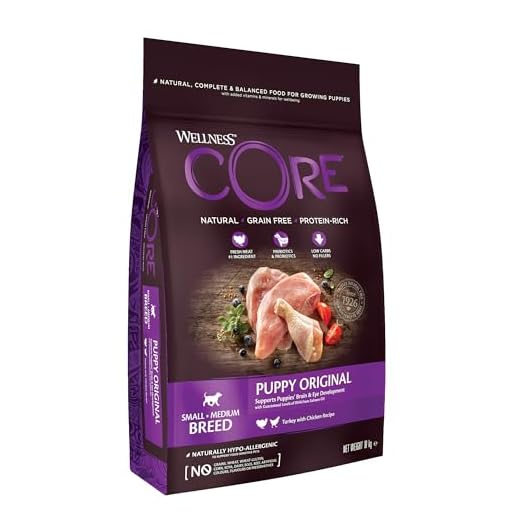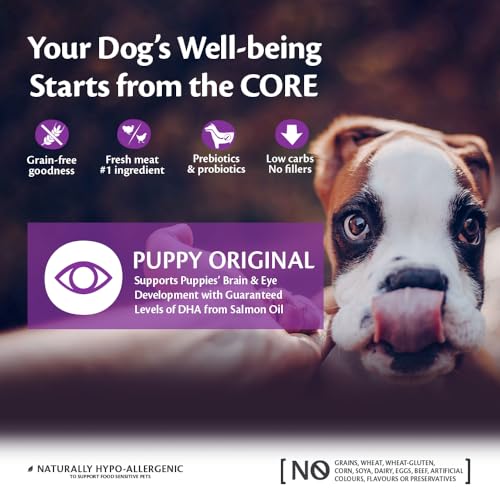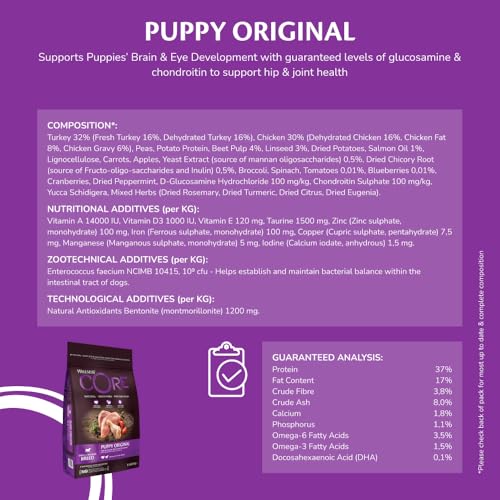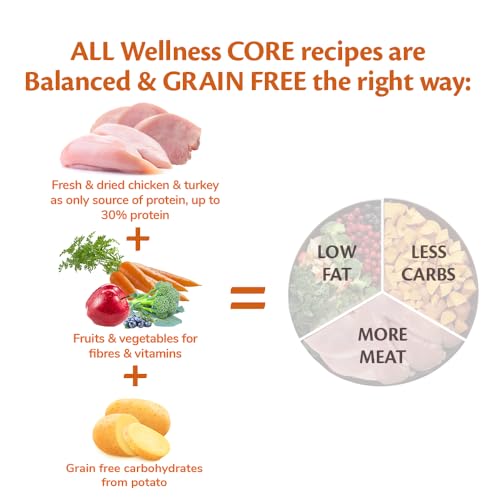




As a proud owner of a Morkie puppy, I understand the joy and responsibility that comes with raising these adorable bundles of energy. Morkies, a crossbreed between a Maltese and a Yorkshire Terrier, are known for their playful nature and affectionate personality. However, their unique genetic makeup also means they have specific dietary needs that must be met to ensure their optimal growth and health. Finding the right food for my Morkie puppy has been a journey filled with research, trial and error, and a lot of learning.
One of the first things I discovered is that Morkie puppies require a balanced diet rich in high-quality proteins, healthy fats, and essential vitamins and minerals. Their small size and high energy levels necessitate a diet that supports their rapid growth and active lifestyle. Additionally, given their propensity for dental issues, it’s crucial to choose food that promotes good dental health. With so many options available in the market, from dry kibble to wet food and even raw diets, selecting the best food can be overwhelming.
In this article, I’ll share my experiences and findings on the best dog food for Morkie puppies. I’ll delve into the specific nutritional needs of Morkies, discuss the pros and cons of various types of dog food, and highlight some of the top brands that have worked well for my puppy. Whether you’re a new Morkie parent or looking to improve your current feeding regimen, I hope my insights will help you make informed decisions that will keep your furry friend happy and healthy.
Why Choosing the Right Food for Your Morkie Puppy is Crucial
As a proud owner of a Morkie puppy, I understand the importance of providing the best possible care for these adorable and energetic little dogs. One of the most critical aspects of their well-being is ensuring they receive the right nutrition. Selecting the appropriate food for your Morkie puppy isn’t just about filling their bowl; it’s about laying the foundation for their long-term health and happiness.
Proper nutrition is vital during the puppy stage because this is when Morkies experience rapid growth and development. Their tiny bodies are building muscles, bones, and organs at an astonishing rate, and they need high-quality ingredients to support these processes. Without the right nutrients, Morkie puppies can face various health issues, including poor growth, weak immune systems, and even behavioural problems.
The Benefits of Choosing the Right Food
Balanced Diet for Optimal Growth
Providing a balanced diet is essential for ensuring your Morkie puppy grows into a healthy adult dog. A diet rich in protein supports muscle development, while healthy fats provide the energy needed for their playful nature. Vitamins and minerals are crucial for developing strong bones and teeth, and antioxidants help boost their immune system.
Avoiding Common Health Issues
Morkies are prone to certain health problems, such as hypoglycemia and dental issues. By choosing the right food, you can mitigate these risks. For instance, foods specifically designed for small breeds often contain the appropriate nutrient levels and kibble size to prevent choking hazards and dental problems.
- High-Quality Protein: Essential for muscle growth and repair.
- Healthy Fats: Provide energy and support cognitive development.
- Vitamins and Minerals: Crucial for overall health and development.
- Antioxidants: Strengthen the immune system.
Promoting Healthy Digestion
A Morkie’s digestive system is sensitive, and feeding them low-quality food can lead to gastrointestinal issues. Opting for high-quality, easily digestible ingredients helps prevent stomach upsets and ensures your puppy absorbs all the necessary nutrients efficiently. Ingredients like real meat, whole grains, and vegetables are excellent choices for promoting healthy digestion.
In conclusion, choosing the right food for your Morkie puppy is not just about meeting their immediate hunger needs. It’s about investing in their long-term health and well-being. By providing a balanced, nutrient-rich diet, you’re giving your Morkie the best start in life, ensuring they grow into a happy, healthy adult dog.
Understanding the Nutritional Needs of Morkie Puppies
When bringing a Morkie puppy into my home, I realised just how crucial proper nutrition is for their growth and development. These delightful crossbreeds between a Maltese and a Yorkshire Terrier require a balanced diet to ensure they thrive and maintain their playful, energetic nature.
As a pet owner, it’s essential to recognise that Morkie puppies have specific dietary needs distinct from other breeds. Their small size and high energy levels mean they need nutrient-dense food to support their rapid growth and active lifestyle.
Essential Nutrients for Morkie Puppies
To ensure my Morkie puppy receives optimal nutrition, I focus on several key nutrients:
- Protein: Vital for muscle development and overall growth. High-quality animal protein sources like chicken, turkey, and fish are ideal.
- Fats: Essential for energy and coat health. Healthy fats from sources like fish oil and flaxseed oil provide omega-3 and omega-6 fatty acids.
- Carbohydrates: Provide the necessary energy for their active lifestyle. Whole grains and vegetables are excellent sources of complex carbohydrates.
- Vitamins and Minerals: Important for immune function and bone development. A well-rounded diet should include vitamins A, D, E, and B-complex, along with minerals like calcium and phosphorus.
Additionally, it’s important to feed Morkie puppies food that is specifically formulated for small breeds. This ensures that the kibble size is manageable for their tiny mouths and that the nutrient profile meets their unique needs.
Choosing the right food for my Morkie puppy has been a journey of understanding their specific nutritional requirements. By providing a balanced diet rich in proteins, healthy fats, carbohydrates, and essential vitamins and minerals, I can support their growth and ensure they lead a happy, healthy life.
Best Dog Food Brands for Morkie Puppies
Choosing the right food for your Morkie puppy is crucial for their growth and overall health. Given their unique needs and small size, it’s essential to provide them with high-quality nutrition that supports their energy levels and development. After extensive research and consideration, I’ve compiled a list of the most suitable dog food brands for Morkie puppies.
In this guide, I’ll discuss ten exceptional dog food brands that cater specifically to the dietary requirements of Morkie puppies. Each brand offers unique benefits, ensuring your furry friend gets the best start in life.
Recommended Brands for Morkie Puppies
-
Royal Canin
Known for its breed-specific formulas, Royal Canin provides a balanced diet tailored for small breed puppies. Their kibble size is perfect for Morkies, promoting healthy digestion and dental health.
-
Wellness Complete Health
This brand offers a natural recipe with high-quality ingredients, including deboned chicken and salmon. It supports healthy growth with DHA from salmon oil, essential for brain and eye development.
-
Blue Buffalo Life Protection
Blue Buffalo includes real meat, garden veggies, and whole grains in their formulas. Their LifeSource Bits are rich in antioxidants, vitamins, and minerals, crucial for a puppy’s development.
-
Hill’s Science Diet
Recommended by veterinarians, Hill’s Science Diet provides a nutrient-dense formula for small breed puppies. It includes a blend of antioxidants and vitamins to support the immune system.
-
Merrick Grain-Free Puppy
Merrick offers grain-free options with deboned chicken as the first ingredient. Their recipes include omega fatty acids for healthy skin and coat, which is beneficial for Morkies.
-
Nutro Wholesome Essentials
Nutro’s formula features farm-raised chicken and sweet potatoes. It’s rich in omega-3 fatty acids and antioxidants, promoting healthy development and a strong immune system.
-
Nature’s Logic
This brand uses whole foods and natural ingredients without synthetic vitamins and minerals. It provides complete nutrition with high protein content and natural sources of DHA.
-
Instinct Raw Boost
Combining high-protein kibble with freeze-dried raw pieces, Instinct Raw Boost offers a nutritious and tasty option. It’s grain-free and supports optimal digestion and immune health.
-
Canidae PURE Puppy
Canidae uses limited ingredients to reduce the risk of food sensitivities. Their formulas include high-quality proteins and are rich in essential nutrients for a growing puppy.
-
Orijen Puppy
Orijen’s biologically appropriate recipes use fresh, regional ingredients. Their high-protein, low-carbohydrate formula mimics a natural diet, ideal for active and growing Morkie puppies.
Grain-Free vs. Grain-Inclusive: What’s Best for Morkie Puppies?
Choosing the right food for your Morkie puppy can be a daunting task, especially when faced with the decision between grain-free and grain-inclusive options. As a Morkie owner myself, I’ve delved into the pros and cons of both to ensure my little furball gets the best nutrition possible.
There’s a lot of buzz around grain-free diets, often touted for their potential to reduce allergies and digestive issues. However, grain-inclusive diets are not without their merits. Understanding the differences and benefits of each can help you make an informed decision for your puppy.
Grain-Free Diets
Grain-free dog foods omit grains like wheat, corn, and rice, replacing them with alternative sources of carbohydrates such as sweet potatoes or lentils. This type of diet is particularly beneficial for Morkies that show signs of grain allergies or sensitivities. Common symptoms of such allergies include itchy skin, ear infections, and gastrointestinal upset. By eliminating grains, you may see a reduction in these issues.
- Pros: Grain-free diets can be easier to digest for some puppies, potentially leading to better stool quality and less bloating.
- Cons: There have been concerns raised about the long-term effects of grain-free diets, including potential links to heart disease. It’s important to consult with a vet to ensure a balanced diet.
Grain-Inclusive Diets
Grain-inclusive dog foods incorporate wholesome grains such as brown rice, barley, and oats. These grains can be an excellent source of essential nutrients, including fibre, vitamins, and minerals, which contribute to a balanced diet for your Morkie puppy. Grains can aid in digestion and provide a steady source of energy.
- Pros: These diets are often more balanced nutritionally, providing a broad spectrum of nutrients that support overall health.
- Cons: Some puppies may have sensitivities or allergies to specific grains, leading to discomfort or health issues.
Ultimately, the choice between grain-free and grain-inclusive diets should be based on your Morkie puppy’s specific needs and health conditions. Regular consultations with your veterinarian can help tailor a diet that ensures your puppy grows up healthy and happy.
Understanding Dog Food Labels: A Morkie Owner’s Guide
Choosing the right food for your Morkie puppy can be a daunting task, especially with the multitude of options available. To make an informed decision, it’s essential to understand how to read dog food labels properly. This guide aims to help you navigate through the key elements of dog food packaging so you can provide the best nutrition for your furry friend.
Reading dog food labels involves more than just glancing at the attractive packaging. You need to delve into the details to ensure the food meets the specific dietary needs of your Morkie. Here’s a step-by-step approach to deciphering those labels.
Key Elements of Dog Food Labels
When examining a dog food label, focus on the following components:
- Ingredients List: Ingredients are listed in order of weight. The first few ingredients are the most significant, so look for high-quality proteins like chicken, beef, or fish at the top. Avoid foods with vague terms like “meat by-products” or “animal digest.”
- Guaranteed Analysis: This section provides the percentages of protein, fat, fibre, and moisture in the food. For Morkie puppies, a high protein content is crucial for growth and development.
- AAFCO Statement: The Association of American Feed Control Officials (AAFCO) statement indicates whether the food meets established nutritional standards. Look for statements like “complete and balanced” for all life stages, ensuring it’s suitable for puppies.
- Feeding Guidelines: Follow the feeding recommendations based on your puppy’s weight and age. Adjust the portions as your Morkie grows and their activity level changes.
Additionally, pay attention to any specific nutritional needs your Morkie might have. For instance, if your puppy has allergies or sensitivities, look for labels that highlight hypoallergenic or grain-free formulas.
Understanding dog food labels can significantly impact your Morkie’s health and well-being. By taking the time to read and comprehend these labels, you can ensure your puppy gets the nutrients they need to thrive. Always consult with your veterinarian if you have any doubts or questions about your Morkie’s diet.
Wet Food vs. Dry Food: Which is Better for Morkie Puppies?
When it comes to feeding my Morkie puppy, I’ve often found myself pondering the benefits of wet food versus dry food. Both options have their merits and drawbacks, and it’s important to consider what works best for your furry friend’s health and lifestyle.
Firstly, wet food is highly palatable and can be an excellent choice for picky eaters. The higher moisture content can also aid in keeping your puppy hydrated, which is particularly beneficial if they don’t drink enough water. However, wet food typically requires refrigeration after opening and can be more expensive in the long run.
Advantages and Disadvantages of Wet Food
Advantages:
- Increased Hydration: The higher water content helps keep your Morkie well-hydrated.
- Enhanced Palatability: Many dogs find wet food more appetising, making it easier to ensure they eat enough.
- Softer Texture: Easier for puppies with dental issues or small jaws to chew.
Disadvantages:
- Cost: Wet food is generally more expensive than dry kibble.
- Storage: Opened cans require refrigeration, and unused portions should be consumed within a few days.
- Dental Health: It doesn’t help in removing plaque and tartar like dry food can.
On the other hand, dry food is convenient and often more economical. It can be left out for longer periods without spoiling, which is ideal for free-feeding. Additionally, the crunchy texture helps in maintaining dental health by reducing plaque build-up.
Advantages and Disadvantages of Dry Food
Advantages:
- Convenience: Easy to store and measure, with a longer shelf life once opened.
- Cost-Effective: Generally less expensive than wet food.
- Dental Benefits: The crunchy texture aids in cleaning teeth and reducing plaque.
Disadvantages:
- Lower Moisture Content: May require ensuring your puppy drinks more water.
- Less Palatable: Some dogs might find dry kibble less appealing compared to wet food.
- Harder Texture: Can be difficult for very young puppies or those with dental issues to chew.
Ultimately, the choice between wet and dry food for Morkie puppies depends on individual needs and preferences. Mixing both types could also be a balanced approach, offering the benefits of each while minimising their drawbacks.
Homemade Dog Food Recipes for Morkie Puppies
Feeding my Morkie puppy with homemade meals has been a rewarding experience. Not only does it ensure that he gets the freshest ingredients, but it also allows me to tailor his diet to meet his specific nutritional needs. When preparing food at home, I can control the quality and quantity of the ingredients, ensuring a balanced and healthy diet for my little companion.
One of the most important aspects of homemade meals for Morkie puppies is maintaining a balanced diet that supports their growth and development. I focus on incorporating high-quality proteins, healthy fats, and essential vitamins and minerals into their meals. Here are some of my favourite recipes that my Morkie puppy loves.
Nutritious Homemade Recipes
Below are some tried-and-tested recipes that have worked wonders for my Morkie puppy’s health and happiness.
Chicken and Vegetable Delight
- Ingredients: 1 cup cooked chicken breast (shredded), 1/2 cup cooked carrots (chopped), 1/2 cup cooked peas, 1/4 cup cooked brown rice, 1 tablespoon olive oil.
- Preparation: Mix all ingredients together in a large bowl. Serve in portions appropriate to your puppy’s size.
- Benefits: This meal is rich in protein from the chicken, while the vegetables and rice provide essential vitamins and carbohydrates for energy.
Beef and Sweet Potato Feast
- Ingredients: 1 cup cooked lean ground beef, 1/2 cup cooked sweet potato (mashed), 1/4 cup cooked green beans (chopped), 1/4 cup cooked quinoa.
- Preparation: Combine all ingredients and mix thoroughly. Ensure the mixture is cool before serving to your puppy.
- Benefits: This recipe offers a good balance of protein and fibre, with the sweet potato adding a touch of natural sweetness that Morkie puppies find irresistible.
Fish and Spinach Medley
- Ingredients: 1 cup cooked salmon (flaked), 1/2 cup cooked spinach (chopped), 1/2 cup cooked pumpkin (mashed), 1 tablespoon flaxseed oil.
- Preparation: Mix the salmon, spinach, and pumpkin together, then add the flaxseed oil and mix again. Serve in appropriate portions.
- Benefits: Salmon provides omega-3 fatty acids which are great for the coat and skin, while spinach and pumpkin add essential vitamins and fibre.
Preparing homemade meals for my Morkie puppy requires a bit of time and effort, but seeing him thrive on these nutritious recipes makes it all worthwhile. Always consult with your vet before making significant changes to your puppy’s diet to ensure all their nutritional needs are met.
Understanding Common Food Allergies in Morkie Puppies
As a conscientious owner of a Morkie puppy, it’s crucial to be aware of potential food allergies that can affect their health and well-being. Despite their small size, Morkies are susceptible to various food sensitivities, which can manifest in different ways.
In my experience, some of the most prevalent food allergens for Morkie puppies include poultry, grains, dairy, and certain artificial additives. These allergens can lead to skin irritation, gastrointestinal issues, and even respiratory problems if not addressed promptly.
Identifying and Addressing Food Allergies in Morkie Puppies
- Observation is key: Pay close attention to your Morkie’s behaviour and physical condition after meals. Look out for signs of itching, vomiting, diarrhoea, or unusual lethargy.
- Opt for hypoallergenic options: When selecting a food for your Morkie, consider hypoallergenic formulas that exclude common allergens such as poultry, grains, and dairy. These specialised diets can provide essential nutrients without triggering adverse reactions.
- Gradual introduction: When transitioning to a new food, introduce it gradually over several days to allow your puppy’s digestive system to adjust. Monitor for any adverse reactions during this transition period.
- Consult with your veterinarian: If you suspect that your Morkie puppy has a food allergy, consult with your veterinarian for a proper diagnosis and treatment plan. Your vet may recommend an elimination diet or allergy testing to pinpoint the specific allergens.
- Regular monitoring: Even after identifying and addressing food allergies, it’s essential to continue monitoring your Morkie’s diet and health closely. Keep track of any changes in symptoms and adjust their diet accordingly.
Establishing a Feeding Routine for Your Morkie Puppies
Feeding my Morkie puppies on a consistent schedule is paramount to their health and growth. I’ve found that establishing a structured feeding routine helps regulate their digestion and prevents overeating, which is crucial for their well-being.
One strategy I employ is to divide their daily portion into several smaller meals throughout the day. This not only keeps them satisfied but also prevents any digestive discomfort that may arise from consuming large quantities of food at once.
Portion Control:
- For Morkie puppies, portion control is essential to maintain a healthy weight and prevent obesity-related health issues. I carefully measure out their meals to ensure they receive the appropriate amount of nutrients without excess.
- I monitor their body condition closely and adjust their portion sizes accordingly. This helps me tailor their diet to their individual needs, ensuring they neither gain nor lose weight too quickly.
Feeding Schedule:
- I stick to a consistent feeding schedule, offering meals at the same times each day. This routine helps regulate their metabolism and keeps them on track for healthy growth and development.
- Typically, I feed my Morkie puppies three to four times a day, spacing their meals evenly throughout the morning, afternoon, and evening. This ensures they receive a steady supply of energy throughout the day.
Transitioning Your Morkie Puppy to Adult Dog Food
Transitioning your Morkie puppy to adult dog food is an important step in their development. As your puppy grows, their nutritional needs change, requiring adjustments in their diet. Here are some expert tips to help you smoothly transition your Morkie to adult dog food:
1. Gradual Transition: Avoid sudden changes in your Morkie’s diet, as it can cause digestive upset. Gradually introduce the new adult dog food by mixing it with their current puppy food over a period of 7-10 days. Start with a small amount of adult food and gradually increase the proportion while decreasing the puppy food.
- Day 1-3: 25% adult food, 75% puppy food
- Day 4-6: 50% adult food, 50% puppy food
- Day 7-9: 75% adult food, 25% puppy food
- Day 10: 100% adult food
2. Monitor Your Morkie’s Response: Pay attention to your Morkie’s reaction during the transition period. Look for signs of digestive issues such as vomiting, diarrhea, or changes in appetite. If any problems occur, slow down the transition process and consult your veterinarian for guidance.
3. Provide Ample Water: Ensure that your Morkie has access to fresh water at all times, especially during the transition period. Adequate hydration is essential for proper digestion and overall health.
4. Stick to a Schedule: Maintain a consistent feeding schedule throughout the transition process. Regular meal times help regulate your Morkie’s digestion and minimize stress associated with dietary changes.
5. Choose High-Quality Adult Dog Food: Select a premium adult dog food that meets the nutritional needs of your Morkie. Look for options specifically formulated for small breed dogs to ensure they receive the right balance of nutrients for their size and activity level.
By following these expert tips, you can make the transition to adult dog food a smooth and successful experience for your beloved Morkie.
Best Dog Food For Morkie Puppies
Features
| Part Number | 10773 |
| Model | 10773 |
| Size | 10kg |
| Language | French |
Features
| Part Number | HARRGSFCP-10 |
| Model | HARRGSFCP-10 |
| Release Date | 2024-01-01T00:00:01Z |
| Size | 10 kg (Pack of 1) |
Features
| Part Number | FTP15 |
| Model | 02SKFTP |
| Is Adult Product | |
| Release Date | 2011-04-14T00:00:01Z |
| Size | 1 count (Pack of 1) |
| Language | English |
Features
| Is Adult Product | |
| Release Date | 2025-05-17T00:00:01Z |
| Language | English |
| Number Of Pages | 213 |
| Publication Date | 2025-05-17T00:00:01Z |
Features
| Part Number | 12274093 |
| Model | TP-7613035152908_Vendor |
| Release Date | 2015-08-24T00:00:01Z |
| Size | 11 kg (Pack of 1) |
| Language | Spanish |
| Price history for PRO PLAN HA Hypoallergenic Dog Food, 11kg | |
|---|---|
|
Latest updates:
|
|
Q&A:
What is the best dog food for Morkie puppies?
The best dog food for Morkie puppies should be high-quality, balanced, and tailored to their small size and energetic nature. Look for formulas specifically designed for small breeds or puppies to ensure they get the right nutrients.
What ingredients should I look for in dog food for Morkie puppies?
Opt for dog foods that list real meat, such as chicken, beef, or fish, as the primary ingredients. Avoid foods with excessive fillers or artificial additives. Whole grains and vegetables can also provide essential nutrients.
How often should I feed my Morkie puppy?
Morkie puppies typically require small, frequent meals to maintain their energy levels. Aim for three to four meals per day, spaced evenly throughout the day. Adjust the portion size based on your puppy’s age, size, and activity level.































